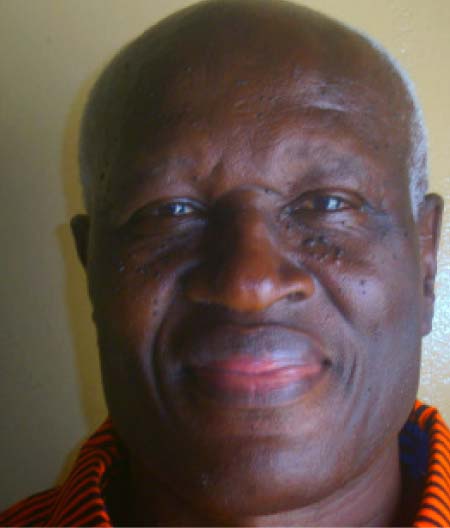
Judgement of Jesus’ actions was not a strange phenomenon in His day because the Pharisees, Sadducees and Scribes prided themselves as the standard to emulate. Any other behaviour would have meant going against the grain and Jesus was no exception. This attitude led to numerous clashes with the religious authorities because they saw Jesus as an intruder, one who was attempting to destabilise the status quo. It was no wonder that they rejected His teachings and refused to believe in Him. In spite of this, Jesus kept pulling the masses around Him – gaining more popularity by the day.
Once, after he had healed a blind man and the Pharisees got to know about it, they said to the man who had received his sight, “This man (meaning Jesus) is not from God, for He does not keep the Sabbath.” (John 9:16) Others from their own ranks asked ‘How can a sinner do such miracles?’ This led to a split amongst them. Later they questioned the man and again said of Jesus: “We know He is a sinner.” The man responded, “Whether He is a sinner or not I don’t know. One thing I know. I was blind but now I see.” (John 9:24-25) What we are is expressed in our deeds. Jesus demonstrated beyond all doubt His power over sin and sickness by healing the oppressed - all for the glory of God.
At another instance, in a Pharisee’s house where Jesus had been invited to dinner, a woman with a very expensive perfume poured it on His feet. The Pharisee knowing that this lady had lived a sinful life, commented: “If this man were a prophet, He would know who is touching Him and what kind of a woman she is – that she is a sinner.” (Luke 7:39) He was passing judgement. Whilst sinners may not have a place in our hearts, Jesus said He came to save humankind “... for all have sinned and fallen short of God’s glory.” (Romans 6:23)
In the gospel of Mark, it is recorded that the woman anointed Jesus by pouring the perfume on His head. “Some of those present were saying indignantly to one another, “Why this waste of perfume? It could have been sold for more than a year’s wages and the money given to the poor.” And they rebuked her harshly.” But Jesus retorted; “Leave her alone, why are you bothering her? She has done a beautiful thing to Me. The poor you will always have with you ... She poured perfume on My body beforehand to prepare for My burial.” (Mark 14:4,6,8) It was divine purpose fulfilled through this gesture. God does not work through the rich and the lofty, but through the humble and the meek.
Jesus never condemned anyone. Even when the Pharisees brought the woman who was caught in adultery to Him in order to have her lapidated, His question to them was; “If anyone of you is without sin, let him be the first to throw a stone at her.” (John 8:7) Before long, all her accusers had disappeared: Jesus asked the lady, “Woman where are they? Has no one condemned you?” (John 8:10) He then admonished her to go and sin no more.
While Jesus did not condone sin, He openly lashed at the self-righteous for thinking so highly of themselves. “Woe to you, teachers of the law and Pharisees, you hypocrites! You are like whitewashed tombs, which look beautiful on the outside but on the inside are full of dead men’s bones and everything unclean. In the same way, on the outside you appear to people as righteous but in the inside you are full of hypocrisy and wickedness.” (Matthew 23:28)
It was these people who would discriminate and show favouritism because of the outward appearance of someone. James, the brother of Jesus warned; “Suppose a man comes into your meeting wearing a gold ring and fine clothes, and a poor man in shabby clothes also comes in. If you show special attention to the man wearing fine clothes and say, ‘Here’s a good seat for you,’ but say to the poor man, “You stand there or sit on the floor by my feet,’ have you not discriminated among yourselves and become judges with evil thoughts.” (James 2:2-3)
Prior to making a judgement, God does not look at the outward appearances of a man or a woman, He looks at the heart. What is the motive behind this act? Why would someone behave in this way? It is what comes from within us that determines our actions and nothing else. “But the things that come out of the mouth come from the heart, and make a man unclean. For out of the heart come evil thoughts, murder, adultery, sexual immorality, theft, false testimony… (Matthew 1518-19)
When Prophet Samuel was commissioned to anoint the second king of Israel from Jesse’s family, Samuel made the mistake of thinking that the best dressed was the one to be anointed. “Surely the Lord’s anointed stands before the Lord,” was his remark when he encountered Eliab, the eldest of Jesse’s sons. God said to him: “Do not consider his appearance or his height, for I have rejected him. The Lord does not look at the things man looks at. Man looks at the outward appearance, but the Lord looks at the heart.” (1 Samuel 16:7) Six brothers passed before him and none of them qualified. It was the shepherd boy, unkempt, rugged, sweaty and smelly that God chose.
Paul in his writings exhorted: “I care very little if I am judged by you or by any human court; indeed, I do not even judge myself. My conscience is clear, but that does not make me innocent. It is the Lord who judges me. Therefore judge nothing before the appointed time; wait till the Lord comes. He will bring to light what is hidden in darkness and will expose the motives of men’s hearts. At that time each will receive his praise from God.” (1 Corinthians 4:3-5)
On matters of judgment, God has the final say. However Jesus Himself revealed; “The Father judges no one, but has entrusted all judgment to the Son, that all may honour the Father.”
The writer of the book of Hebrews has this to say about the Word of God and judgement. “For the word of God is living and active, sharper than any double-edged sword; it penetrates even to dividing soul and spirit, joints and marrows, it judges the thoughts and attitudes of the heart.” (Hebrews 4.12)
Pray that as we spend time with the Word of God, we will gain understanding to be faithful disciples of His.


